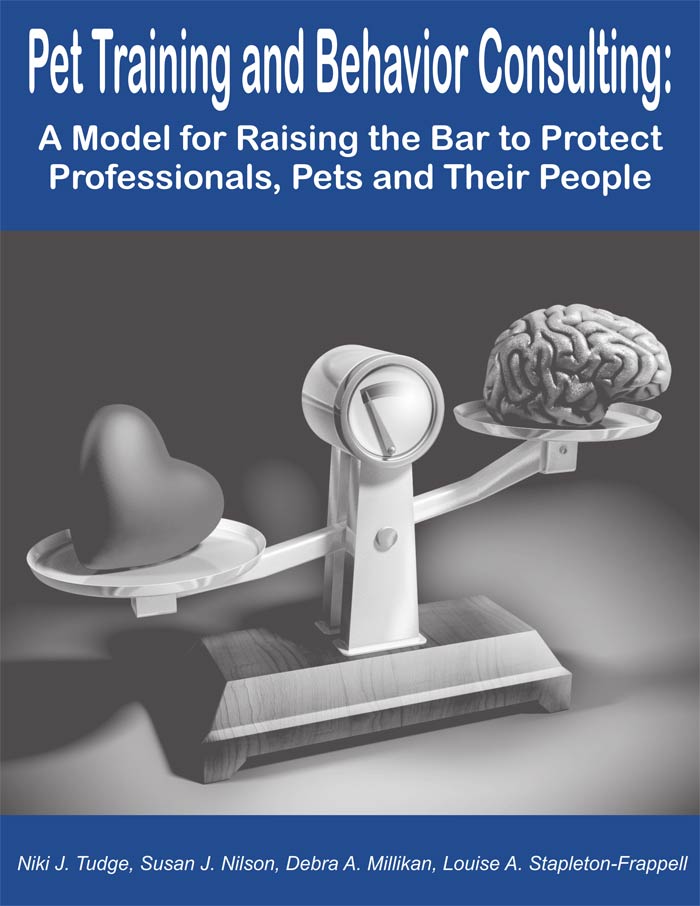Pets and Their People Blog
Owner vs. Guardian
*Do you consider yourself a pet owner or a guardian?
Blouin (2013) studied the variations in dog owners’ attitudes toward their pets in terms of interactions and their treatment. He concludes that the relationship pet owners have with their pets is one of three orientations:
- A dominionistic relationship where owners have a relatively low regard for their pets seeing them only for the value they provide; a function such as protection work.
- A humanistic orientation whereby owners elevate their pets to a status, such as surrogate human. The pets are valued for the benefits they provide to their owners resulting from a close relationship and attachment.
- A protectionist orientation where owners have a very high regard for their pets and, in fact, all animals in general. Pets are viewed as highly valuable companions and are creatures with their own interests.
Blouin’s study reflects a wide variation in how owners consider and value their pets, ranging from having functional value to being seen as a companion who deserves to have his or her own interests protected. Indeed, if one were to ask pet owners how they would like their pets to be classified, there would most likely be a vast array of opinions varying from one end of a continuum to another.
What are your thoughts on this?
Owner, guardian, and parent are the most commonly used terms to describe the relationship between pets and their humans and there have been some efforts to redefine the relationship between the two parties by taking on board the term “guardian” as a replacement for the word “owner.”

not inanimate objects.
Pet owners “in 17 cities, one state, and two counties in California can legally refer to themselves as animal guardians.” (Nolen, 2011). Yet, according to Favre (2010) as documented by Nolen (2011), “[y]ou can’t just change a word and expect the whole legal system to change.” According to Nolen (2011), citing Dennis, “the appeal of guardianship is the suggestion it will somehow result in less animal abuse and neglect.” Dennis also identifies problematic legal implications: “To lawyers, ‘guardian’ has a considerable amount of legal significance. Ownership and guardianship are not matters of semantics; they’re not interchangeable terms.” (Nolen, 2011).
States Berns (2013): “One alternative is a sort of limited personhood for animals that show neurobiological evidence of positive emotions. Many rescue groups already use the label of ‘guardian’ to describe human caregivers, binding the human to his ward with an implicit responsibility to care for her…If we went a step further and granted dogs rights of personhood, they would be afforded additional protection against exploitation. Puppy mills, laboratory dogs and dog racing would be banned for violating the basic right of self-determination of a person.” However, Berns (2013) suspects society is “many years away from considering dogs as persons.”
Crowell-Davis (2008, p.428) determines that a pet owner’s reasons for having a pet are also likely to “significantly affect his or her tolerance of various behavior problems.” If this is the case, then surely the legal determination for a pet needs to take into consideration not just the factor of ownership, but also a degree of responsibility to their mental, physical and environmental well-being.
For owners, the concern regarding the legal classification of pets may stem largely from some, or all, of the following:
- When pets are considered property, it does not take into consideration that they are not inanimate objects, but sentient beings.
- With one’s own property, one has full rights to do with it as one pleases. This will not always be in the best interest of a pet and is entirely dependent on the decisions of the individual owner.
- If the legal status were to change and pets were universally given rights in the same way children are, then this could impact the liability issues of pet “ownership” insurance and/or pet medical insurance and may bring with it an overbearing ability for authorities to more easily remove a pet from a home or take custody of a pet without perceived due process.
- As pets are legally considered property, responsible and caring pet owners can make important and unchallenged decisions on behalf of their pets such as medical care, behavior modification and euthanasia, should it be necessary.
- As property, irresponsible pet owners may neglect the needs of a pet up to and including taking his life in what some would deem an inhumane manner.
What are your thoughts on all of this?
* This post is an excerpt from Pet Training and Behavior Consulting: A Model for Raising the Bar to Protect Professionals, Pets and Their People by Tudge, N.J, Nilson, S.J., Millikan, D.A., & Stapleton-Frappell, L.A. (2019). (n.p.): DogNostics Career Center Publishing. Get your e-book here .
References
Berns, G. (2013, October 5). Dogs Are People Too. New York Times. Retrieved February 2, 2019, from https://www.nytimes.com/2013/10/06/opinion/sunday/dogs-are-people-too.html
Blouin, D.D. (2013). Are Dogs Children, Companions, or Just Animals? Understanding Variations in People’s Orientations toward Animals. Anthrozoös 26 (2) 279-294. Retrieved January 1, 2019, from https://www.tandfonline.com/doi/abs/10.2752/175303713X13636846944402?journalCode=rfan20
Crowell-Davis, S. (2008, August). Motivation for Pet Ownership and Its Relevance to Behavior Problems. Compendium (30) 423-8
Favre, D. (2010). Living Property: A New Status for Animals Within the Legal System. 93 Marquette Law Review 1021. Retrieved January 1, 2019, from http://scholarship.law.marquette.edu/mulr/vol93/iss3/3
Nolen, R.S. (2011, April 1). After More Than A Decade, Has Pet Guardianship Changed Anything? Journal of the American Veterinary Medical Association News . Retrieved February 2, 2019, from https://admin.avma.org/News/JAVMANews/Pages/110401a.aspx?mode=mobile

